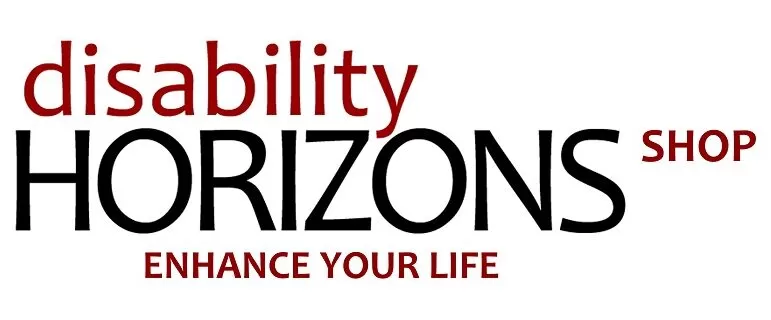The following article was written by Sophia Lane, a London-based writer and advocate who shares the story of her son Alfie to raise awareness about birth injuries and the need for better neonatal care. We are honoured to share her powerful story.
A Traumatic Start
When my son Alfie was born, he was blue. He had been deprived of oxygen for far longer than he should have been, resulting in a severe brain injury diagnosed as Grade 3 Hypoxic-Ischemic Encephalopathy (HIE). Alongside this, he battled congenital pneumonia, and his chances of survival were just fifty-fifty. Alfie spent his first days in the Neonatal Critical Intensive Unit, connected to full life support. His tiny body was cooled to reduce further damage to his brain, and he fought through seizures that shook us all with fear.
A Short Life, A Lasting Impact
Though Alfie’s life was tragically short, his impact is immeasurable. He lived every day with the strength and spirit of a fighter, and his journey has forever changed mine. Losing him broke my heart in ways I cannot fully express. But amid the grief, I am driven to tell his story—not only to honour his memory, but to shine a light on the failures that led to his injury, and to fight for justice and change so no other family suffers as we have.
Alfie’s story is one of survival and loss, of love and injustice. It is a reminder that behind every statistic is a child with a name, a family who will never forget, and a system that must do better.
The Fight for Survival
In those first terrifying hours, Alfie’s tiny body was hooked up to machines no parent ever wants to see. The cooling treatment was his only chance to reduce the damage done by the oxygen deprivation. Seizures wracked his fragile frame, and every beep and alarm was a reminder of how precarious his survival was. The NICU staff did everything they could, but the reality was harsh: Alfie’s brain injury was severe, and his prognosis uncertain.
A Parent’s Intuition
As a parent, you cling to hope. You learn to live moment by moment, praying for a miracle. But even as Alfie fought with everything he had, I knew something had gone terribly wrong before he was born—something that should never have happened.
A Preventable Harm
The medical diagnosis was clear. The prolonged oxygen deprivation, the seizures, the brain injury—all signs of a failure in care during labor. This wasn’t just a tragedy; it was preventable harm.
Pursuing Justice
After Alfie’s passing, the weight of grief became a constant companion. Losing a child is a pain that doesn’t fade—it transforms the world you live in. But alongside this grief came a fierce determination. Alfie’s life, though short, must mean something. His story must be told.
I began pursuing justice, seeking answers and accountability for the failures that led to his injury and death. The legal process is exhausting and slow, but it is necessary for Alfie, and for every family who deserves safer care.
Raising Awareness
Through sharing our experience, I hope to raise awareness about hypoxic-ischaemic encephalopathy and cerebral palsy caused by medical negligence. These conditions are devastating, and their consequences ripple far beyond the hospital walls. They affect entire families, reshaping futures in ways most cannot imagine.
Alfie’s memory fuels my fight. I want to ensure that hospitals and healthcare providers learn from mistakes, that protocols are improved, and that families are given the support and respect they deserve—not just during tragedy, but long after.
A Call to Action
No parent should have to bury their child because of preventable errors. No family should face this grief alone.
Alfie’s story is not just a personal tragedy; it’s a call to action. Medical errors during labour, like the prolonged oxygen deprivation he suffered, are preventable. Yet, time and again, families are left to bear the consequences of systemic failures—failures that could be avoided with proper monitoring, timely intervention, and accountability.
The Need for Training and Accountability
I have learned that awareness is key. Many people don’t understand how quickly brain injuries like HIE can develop or how vital immediate medical care is during labour. Without proper training and vigilance, crucial moments can be missed, leading to life-altering consequences for children and their families.
Advocacy means pushing for better standards of care in hospitals, ensuring that medical staff have the resources and training to recognise and respond to distress signals in labour. It means demanding transparency and accountability when things go wrong, so families receive honest answers and justice, not silence and dismissal.
Supporting Families Living With the Consequences
But advocacy also means support for families living with the aftermath. Children with cerebral palsy and brain injuries require lifelong care, therapy, and resources. Many families face overwhelming financial and emotional burdens with little assistance. Policies must change to provide better support systems, funding, and access to vital services.
Alfie’s Legacy
By sharing Alfie’s story, I want to give a voice to all families affected by birth injuries and medical negligence. The pain is immense, but so is the power of collective action. Together, we can push for reforms that protect babies, support families, and hold negligent providers accountable.
Every child deserves the chance to thrive from their very first breath. Alfie’s life, though brief, is a reminder of that promise—and a demand that we do better, for him and for all children yet to be born.
A Future Worth Fighting For
Losing Alfie has reshaped my world in ways I never imagined. The grief is raw and unending, but so is my resolve. His life and death are a testament to the urgent need for change. No parent should ever have to face the heartbreak of losing a child to injuries that could have been prevented.
To the healthcare system, I say: Invest in better training. Improve protocols. Listen to families. Transparency and accountability are not just ideals—they are necessities. When mistakes happen, owning them and learning from them can save future lives.
To other parents and families walking this painful path, know you are not alone. Your grief is valid, your fight is important, and your voice matters. Together, we can raise awareness, demand justice, and create a future where fewer children suffer needlessly.
Alfie may no longer be here with me, but his spirit drives this fight. His story is my mission—to honour his memory and to protect others from the same fate. Because every child deserves a chance to live, to grow, and to be loved without the shadow of preventable harm.
About the Author
Sophia Lane (a pseudonym) is a London-based freelance writer with over 35 years of experience. She has worked extensively with children and young people with disabilities and has first-hand experience as a carer for someone with complex medical conditions. Following the loss of her son Alfie to preventable birth injuries, Sophia has become an advocate for families affected by Hypoxic-Ischemic Encephalopathy (HIE) and related conditions. Through her writing, she works to raise awareness about neonatal brain injuries and the need for improved care standards and family support systems.
Further Resources
If you or someone you know has been affected by birth injury, brain damage, or neonatal intensive care challenges, the following organisations can offer support, information, and guidance:
- NHS: Hypoxic-Ischaemic Encephalopathy (HIE)
PDF guide for parents: medical overview of HIE, symptoms, treatments, and prognosis. - Bliss – for babies born premature or sick
A leading UK charity supporting families with babies in neonatal care. - Cerebral Palsy UK
Offers expert guidance on cerebral palsy, including therapy, equipment, and education resources. - AvMA – Action against Medical Accidents
A charity helping people affected by medical negligence, offering free advice and legal support. - Scope UK
Provides disability advice, family support, and campaigns for equality and justice. - Birth Trauma Association
Support for parents dealing with psychological birth trauma and PTSD.

